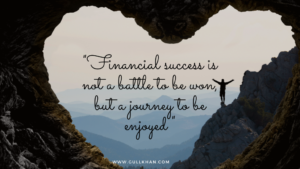In a world where the measure of a person often comes down to their achievements and external validation, it’s easy to confuse self-worth with self-esteem. Both concepts, while interconnected, hold distinct places in our understanding of ourselves and our place in the world. Today, let’s embark on a journey to demystify these concepts and unearth the true path to abundance.
The Parable of the Golden Buddha
 Centuries ago, a village in Southeast Asia was home to a magnificent golden Buddha. This statue wasn’t just a religious icon; it was the heart of the community. However, as war approached, the villagers, fearing the worst, cloaked their treasured Buddha in clay to disguise its value.
Centuries ago, a village in Southeast Asia was home to a magnificent golden Buddha. This statue wasn’t just a religious icon; it was the heart of the community. However, as war approached, the villagers, fearing the worst, cloaked their treasured Buddha in clay to disguise its value.
The inevitable happened—the village was ravaged, and knowledge of the golden Buddha was lost. It wasn’t until the mid-20th century that, during the relocation of a monastery, a glimmer of gold was spotted beneath the clay. As layers were removed, the true splendor of the Buddha was revealed once more, now housed in its own temple, a testament to its enduring worth.
The golden Buddha is not just a sacred relic but a symbol of resilience and the eternal worth that lies within. It serves as a poignant reminder that true value can never be diminished by the sands of time or the trials of life, and that sometimes, the most extraordinary treasures are hidden in plain sight, waiting for the moment when they can shine once again.
Self-Worth vs. Self-Esteem
The parable of the golden Buddha not only embodies the enduring saga of human civilization but also serves as an allegorical canvas upon which the intricate nuances of self-worth and self-esteem are vividly painted.
Just as the golden Buddha’s intrinsic value remained unscathed beneath layers of clay, our inherent self-worth is a constant, an unchanging core that exists independent of the vicissitudes of life and the judgments of the world.

Self-worth is akin to the quiet pulse of a hidden spring, a source that nourishes from within. It is the bedrock of our being, the unshakeable belief in our own significance, and the recognition of our innate human dignity.
This intrinsic value does not fluctuate with the seasons of our lives or the fortunes of our endeavors. It is as present in the infant’s first breath as it is in the sage’s last—it is an immutable truth of our existence.
Contrast this with self-esteem, which, much like the clay encasing the golden Buddha, is an external construct. It is the patina acquired through our interactions with the world, shaped and reshaped by the accolades we earn, the goals we achieve, and the recognition we garner. Self-esteem is the mirror held up by society, reflecting back at us an image that can either amplify our brightness or cast shadows of doubt.
Indeed, self-esteem is a mercurial companion, buoying us with a sense of pride in our moments of triumph, yet just as swiftly plunging us into the depths of despair when failure casts its gloomy pall. It is a measure not of who we are, but of how we are perceived, a gauge that varies with the perspectives and prejudices of those around us.
The Price of Misaligned Esteem
The repercussions of prioritizing external validation over internal worth are profound and far-reaching. Dr. Jennifer Crocker’s research provides a compelling glimpse into this dynamic. Her studies reveal that students who tethered their self-worth to external validation—like grades, appearance, or social approval—were more prone to stress, anger, and an array of detrimental behaviors. This relentless quest for approval led them down a path fraught with emotional turbulence and instability.
Conversely, students who cultivated a self-worth that was deeply rooted in an unshakeable belief in their intrinsic value exhibited remarkable academic and personal growth. Their well-being was not contingent on external accolades or achievements. Instead, it sprang from a steady and secure inner foundation.
These striking differences underscore the profound impact our internal beliefs exert on our external realities. When our esteem is misaligned—anchored in the shifting sands of external validation—we find ourselves on an unsteady, often treacherous terrain.
However, when our sense of worth is aligned with a deep and unwavering belief in our inherent value, we navigate life with greater stability, resilience, and fulfillment. It is this inner alignment that shapes our experiences, relationships, and ultimately, our destiny.
From Self-Worth to Abundance
 Embarking on the journey to abundance is fundamentally a process of inward reflection and self-appreciation. It begins with a profound acknowledgment of our inherent self-worth. This is not about vanity or arrogance but recognizing that we, as individuals, possess an intrinsic value independent of external accolades or successes.
Embarking on the journey to abundance is fundamentally a process of inward reflection and self-appreciation. It begins with a profound acknowledgment of our inherent self-worth. This is not about vanity or arrogance but recognizing that we, as individuals, possess an intrinsic value independent of external accolades or successes.
When we learn to value ourselves in this unconditioned manner, we naturally establish healthy boundaries, attract authentic opportunities, and navigate the complexities of life with greater resilience and grace.
In stark contrast, a deficiency in self-worth distorts our perception and our belief in what we rightfully deserve, constricting our access to the richness and fullness of life. It is akin to a magnificent statue of Buddha veiled in layers of clay—our true potential remains shrouded, eagerly awaiting our recognition and honor of our innate worth.
Cultivating Self-Worth
The elevation of self-worth is less about altering our external circumstances and more about an internal awakening. It begins with the subtle yet powerful practice of affirmations—positive, reinforcing statements that act as gentle yet persistent reminders of our inherent value. These affirmations are like seeds planted in the fertile soil of our consciousness, gradually taking root and bolstering our confidence and self-esteem.
Incorporating gratitude practices into our daily routine also plays a pivotal role in this transformation. By consciously shifting our focus from perceived deficiencies to an appreciation of the abundance that already exists in our lives, we raise our vibrational energy, enhancing our resilience and our ability to attract more positivity.
Equally important is learning the art of receiving gracefully. This is not merely about accepting gifts or compliments but encompasses a deeper dimension of trust, openness, and acknowledging our innate worthiness to receive the abundant gifts that life has to offer.
And perhaps most crucially, we must cease the harmful practice of negotiating our worth with others. Our right to desire and pursue a fulfilling life is inherent and non-negotiable. By steadfastly recognizing and honoring our worth, we take the first, most vital step towards unlocking our full potential and paving the way to a life of abundance.
Conclusion
 When we align with our true self-worth, life unfolds with ease and serenity. This alignment is the essence of the journey from self-worth to abundance—a path not of seeking external validation, but of recognizing the golden radiance that has always resided within.
When we align with our true self-worth, life unfolds with ease and serenity. This alignment is the essence of the journey from self-worth to abundance—a path not of seeking external validation, but of recognizing the golden radiance that has always resided within.
For a deeper dive into cultivating a mindset of abundance, visit https://www.millionairefoundations.com/ and discover the potential waiting to be uncovered within you.




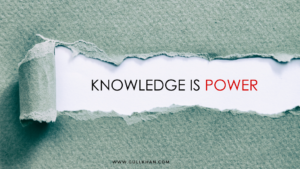 Embarking on a journey to financial well-being is not just about numbers; it’s about mindset, strategies, and consistent actions. By introspecting on our deep-rooted beliefs, understanding the nuances of our cash flow, and employing systematic approaches, we not only set ourselves on a path of financial growth but also cultivate a life of abundance, security, and fulfillment. In this expedition, remember that knowledge is power, and taking deliberate steps today can pave the way for a prosperous tomorrow!
Embarking on a journey to financial well-being is not just about numbers; it’s about mindset, strategies, and consistent actions. By introspecting on our deep-rooted beliefs, understanding the nuances of our cash flow, and employing systematic approaches, we not only set ourselves on a path of financial growth but also cultivate a life of abundance, security, and fulfillment. In this expedition, remember that knowledge is power, and taking deliberate steps today can pave the way for a prosperous tomorrow!





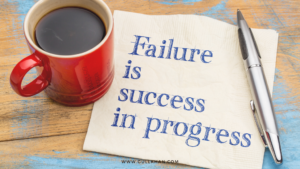 Fear of failure is a common barrier that can paralyze entrepreneurs and hinder business growth. The fear of making mistakes, facing rejection, or experiencing setbacks can prevent us from taking calculated risks and seizing opportunities. We delve into the origins of this fear and its impact on decision-making, innovation, and progress. Through inspiring stories of entrepreneurs who have conquered their fears, we reveal powerful strategies to transform fear into fuel for success.
Fear of failure is a common barrier that can paralyze entrepreneurs and hinder business growth. The fear of making mistakes, facing rejection, or experiencing setbacks can prevent us from taking calculated risks and seizing opportunities. We delve into the origins of this fear and its impact on decision-making, innovation, and progress. Through inspiring stories of entrepreneurs who have conquered their fears, we reveal powerful strategies to transform fear into fuel for success. A lack of self-belief can undermine your potential and dampen your aspirations. Negative self-talk, imposter syndrome, and self-doubt can limit your ability to take bold actions and embrace new opportunities. Building confidence and cultivating a positive self-image are essential for unlocking your full potential.
A lack of self-belief can undermine your potential and dampen your aspirations. Negative self-talk, imposter syndrome, and self-doubt can limit your ability to take bold actions and embrace new opportunities. Building confidence and cultivating a positive self-image are essential for unlocking your full potential.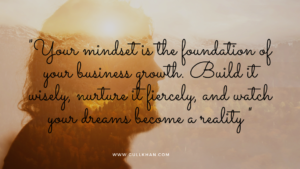 Unlocking your business’s full growth potential requires a deep understanding of the mindset barriers that may be hindering your progress. By addressing and overcoming fear of failure, embracing a growth mindset, cultivating focus, fostering self-belief, and building resilience, you can break free from limitations and embark on a transformative journey toward business success. Take a moment to reflect on your own mindset and identify areas where you can make positive changes. Remember, your mindset has the power to shape your business’s trajectory, and by adopting a mindset of growth and abundance, you can achieve remarkable results. Embrace the possibilities, seize the opportunities, and witness the incredible transformation that awaits you and your business.
Unlocking your business’s full growth potential requires a deep understanding of the mindset barriers that may be hindering your progress. By addressing and overcoming fear of failure, embracing a growth mindset, cultivating focus, fostering self-belief, and building resilience, you can break free from limitations and embark on a transformative journey toward business success. Take a moment to reflect on your own mindset and identify areas where you can make positive changes. Remember, your mindset has the power to shape your business’s trajectory, and by adopting a mindset of growth and abundance, you can achieve remarkable results. Embrace the possibilities, seize the opportunities, and witness the incredible transformation that awaits you and your business.
 When we encounter moments in our lives where it feels like life is treating us unfairly, it can be helpful to reflect on these experiences. By introspecting and exploring the emotions associated with these situations, we can gain valuable insights into our reactions and thought patterns. This reflection allows us to challenge our assumptions and question whether our perception of unfairness is based on a limited viewpoint.
When we encounter moments in our lives where it feels like life is treating us unfairly, it can be helpful to reflect on these experiences. By introspecting and exploring the emotions associated with these situations, we can gain valuable insights into our reactions and thought patterns. This reflection allows us to challenge our assumptions and question whether our perception of unfairness is based on a limited viewpoint. When it comes to our money mindset, understanding God’s fairness can help us reframe our perception of financial success. Rather than seeing it as a measure of luck or privilege, we can approach it from a perspective of divine alignment and the rewards that come from living in accordance with divine principles.
When it comes to our money mindset, understanding God’s fairness can help us reframe our perception of financial success. Rather than seeing it as a measure of luck or privilege, we can approach it from a perspective of divine alignment and the rewards that come from living in accordance with divine principles.
 By facing these fears and taking calculated risks, individuals can overcome these obstacles and move closer towards financial freedom. Learning to manage and mitigate risk, understanding that failure is a natural part of the process, and preparing for uncertainty can all help alleviate anxiety and give individuals the confidence to pursue their financial goals.
By facing these fears and taking calculated risks, individuals can overcome these obstacles and move closer towards financial freedom. Learning to manage and mitigate risk, understanding that failure is a natural part of the process, and preparing for uncertainty can all help alleviate anxiety and give individuals the confidence to pursue their financial goals.

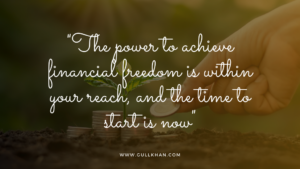 In conclusion, financial success is not just about luck or chance; it requires a proactive and disciplined approach. Overcoming the fear of failure, risk, and uncertainty, developing a strong money mindset, and creating a personalized financial plan are essential steps towards achieving financial freedom.
In conclusion, financial success is not just about luck or chance; it requires a proactive and disciplined approach. Overcoming the fear of failure, risk, and uncertainty, developing a strong money mindset, and creating a personalized financial plan are essential steps towards achieving financial freedom.
 To create a budget, start by tracking your expenses for a month or two. This will give you a good idea of where your money is going and help you identify areas where you can cut back. Once you have a clear picture of your spending habits, you can create a budget that reflects your financial goals.
To create a budget, start by tracking your expenses for a month or two. This will give you a good idea of where your money is going and help you identify areas where you can cut back. Once you have a clear picture of your spending habits, you can create a budget that reflects your financial goals.

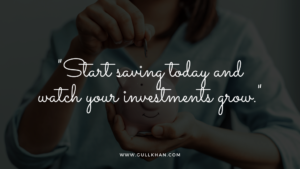 In conclusion, saving money for investment is an essential step towards achieving financial stability and reaching your long-term financial goals. With these ten tips, you can start building your investment portfolio and working towards your financial future. Remember, it’s never too late to start saving and investing, and every small step you take can make a big difference in the long run.
In conclusion, saving money for investment is an essential step towards achieving financial stability and reaching your long-term financial goals. With these ten tips, you can start building your investment portfolio and working towards your financial future. Remember, it’s never too late to start saving and investing, and every small step you take can make a big difference in the long run.
 In this blog post, we will challenge these myths and provide insights into the truth about money. We will discuss five common lies about money and provide practical advice on how to overcome them. From the myth of the “get rich quick” scheme to the misconception that you need money to make money, we will explore each lie and explain why it is false.
In this blog post, we will challenge these myths and provide insights into the truth about money. We will discuss five common lies about money and provide practical advice on how to overcome them. From the myth of the “get rich quick” scheme to the misconception that you need money to make money, we will explore each lie and explain why it is false.

 When you approach negotiations with a sense of assertiveness, you’re able to demonstrate your authority and competence, showing others that you have what it takes to get the job done. This is especially important for entrepreneurs and business owners who need to prove themselves to clients and employees alike.
When you approach negotiations with a sense of assertiveness, you’re able to demonstrate your authority and competence, showing others that you have what it takes to get the job done. This is especially important for entrepreneurs and business owners who need to prove themselves to clients and employees alike. Men are generally known to have a higher degree of rational thinking than women, but this does not mean that women cannot embody this trait as well. However, women need to be aware that their rational thinking may not always be at its best due to hormonal fluctuations during certain times of the month.
Men are generally known to have a higher degree of rational thinking than women, but this does not mean that women cannot embody this trait as well. However, women need to be aware that their rational thinking may not always be at its best due to hormonal fluctuations during certain times of the month. Masculine energy tends to have a competitive nature, which can lead to a strong desire to outperform others financially. This drive to be better than others is not unique to men, as both men and women can experience it. However, the healthy aspect of this masculine energy trait is that it provides the incentive to push oneself harder, to get out of one’s comfort zone, and take calculated risks.
Masculine energy tends to have a competitive nature, which can lead to a strong desire to outperform others financially. This drive to be better than others is not unique to men, as both men and women can experience it. However, the healthy aspect of this masculine energy trait is that it provides the incentive to push oneself harder, to get out of one’s comfort zone, and take calculated risks.
 In conclusion, we’ve explored the fascinating relationship between masculine energy and money. Masculine energy, with its focus on independence, strength, and drive, can be a powerful force in helping individuals achieve success in their careers and personal lives. However, as we’ve seen, this same energy can also lead to an overemphasis on competition, risk-taking, and short-term gains, which can be detrimental to our long-term financial well-being.
In conclusion, we’ve explored the fascinating relationship between masculine energy and money. Masculine energy, with its focus on independence, strength, and drive, can be a powerful force in helping individuals achieve success in their careers and personal lives. However, as we’ve seen, this same energy can also lead to an overemphasis on competition, risk-taking, and short-term gains, which can be detrimental to our long-term financial well-being.

 Feminine energy is deeply intuitive, and this can be a powerful asset when it comes to making financial decisions. When we learn to trust our instincts and listen to our inner voice, we can avoid making decisions based purely on logic or external pressures.
Feminine energy is deeply intuitive, and this can be a powerful asset when it comes to making financial decisions. When we learn to trust our instincts and listen to our inner voice, we can avoid making decisions based purely on logic or external pressures. Adaptability is key when navigating the ups and downs of the financial world.The world of finance is constantly changing, and it’s essential to stay flexible and adaptable in order to succeed.
Adaptability is key when navigating the ups and downs of the financial world.The world of finance is constantly changing, and it’s essential to stay flexible and adaptable in order to succeed. Compassion is a core value of feminine energy, and it’s an important quality when it comes to financial success. When we treat ourselves and others with kindness and respect, we create a positive and supportive environment that encourages growth and prosperity.
Compassion is a core value of feminine energy, and it’s an important quality when it comes to financial success. When we treat ourselves and others with kindness and respect, we create a positive and supportive environment that encourages growth and prosperity.